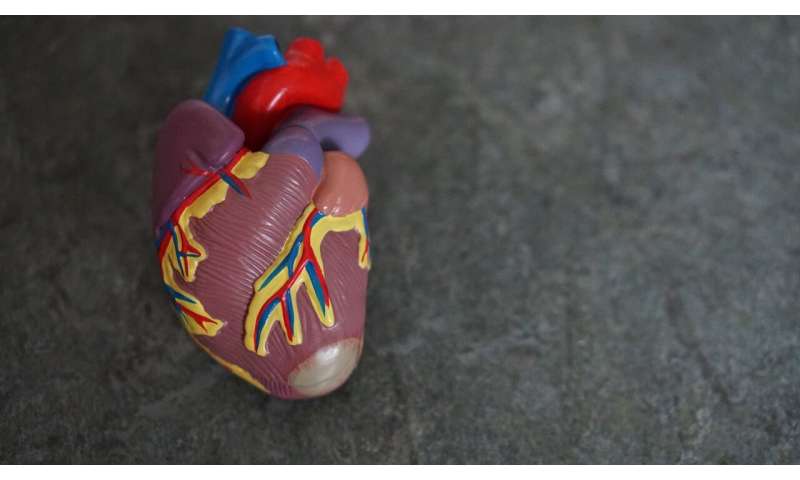#New medication to treat shock caused by blood or fluid loss found safe and effective

“#New medication to treat shock caused by blood or fluid loss found safe and effective”

Centhaquine, a new medication to treat patients who have severe blood or fluid loss, significantly improved outcomes and reduced death rate when added to standard of care, compared to standard care alone, according to preliminary research to be presented at the American Heart Association’s Resuscitation Science Symposium 2020.
Severe loss of blood or fluids due to trauma, hemorrhage, gastrointestinal bleeding, excessive blood loss after surgery, diarrhea or vomiting can cause hypovolemic shock. About 60,000 people in the U.S. and 1.9 million people worldwide die each year due to hemorrhagic shock, with a large percentage of patients dying from blood loss within the first six hours.
“The primary goal when treating traumatic hemorrhage is to control blood loss and maintain cardiovascular function to prevent multi-organ failure and death,” said Anil Gulati, M.D., Ph.D., lead author of the study and chairman and chief executive officer at Pharmazz, Inc., the company that produces centhaquine. “Despite advances in medical science, treatment for hypovolemic shock has changed little in the past 50 years, and there is an urgent need for an effective resuscitative agent for this serious and life-threatening condition. We investigated the safety and efficacy of centhaquine compared to standard care for the treatment of hypovolemic shock.”
Centhaquine is a first-in-class resuscitative agent for treatment of hypovolemic shock with a unique mechanism of action. It increases pooled venous blood returning to the heart and redistributes that blood to vital organs, a critical process to preserve organ function and reduce mortality in patients with shock.
This multi-center, randomized, placebo-controlled phase III clinical study included 105 patients in India receiving standard of care for hypovolemic shock in a hospital or intensive care setting. Patients were randomized to receive either 1) standard of care and intravenous centhaquine, or 2) standard of care plus saline (control group).
Researchers found several markers of improvement in the group receiving centhaquine compared to those who received standard treatment alone:
- At 24 hours of resuscitation, systolic blood pressure was raised from 90 mmHg or less to higher than 110 mmHg in 59% of patients in the control group and 81% of those in the centhaquine group.
- Also, at 24 hours diastolic blood pressure was above 70 mmHg in 50% of the control group and 78% of those in the centhaquine group.
- Reduction of blood lactate levels to 1.5 mmol/L or less occurred in 47% of the control group patients and 69% of the centhaquine patients. High levels of blood lactate are related to an increased risk of death for patients experiencing shock.
- 47% of patients in the standard treatment group had low base-deficit—a measure of oxygen imbalance—compared to 68% in the centhaquine group. Base-deficit is an indicator of low tissue blood perfusion and oxygenation. Lower numbers indicate better blood perfusion and tissue oxygenation.
- The 28-day death rate was 12% in the control group and 3% in the centhaquine group.
Gulati added that the centhaquine group had improved acute respiratory distress syndrome and multiple organ dysfunction scores compared with the control group.
“Time is of the essence for hypovolemic shock patients, and these results suggest faster recovery towards normalization of blood pressure with centhaquine,” Gulati said. “Centhaquine added to standard shock treatment also showed compelling mortality improvement over standard shock treatment, with a 9% absolute reduction in mortality compared to the control group.”
Centhaquine is currently available to health care professionals in India and is advancing towards late stage clinical trials in the United States.
Early steroids improve outcomes in patients with septic shock
AOS.02c Lightning Round Oral Abstract Presentations: Pharmacologic Interventions During Cardiac Arrest: professional.heart.org/en/meet … ymposium/programming
Citation:
New medication to treat shock caused by blood or fluid loss found safe and effective (2020, November 9)
retrieved 9 November 2020
from https://medicalxpress.com/news/2020-11-medication-blood-fluid-loss-safe.html
This document is subject to copyright. Apart from any fair dealing for the purpose of private study or research, no
part may be reproduced without the written permission. The content is provided for information purposes only.
For forums sites go to Forum.BuradaBiliyorum.Com
If you want to read more Like this articles, you can visit our Science category.


